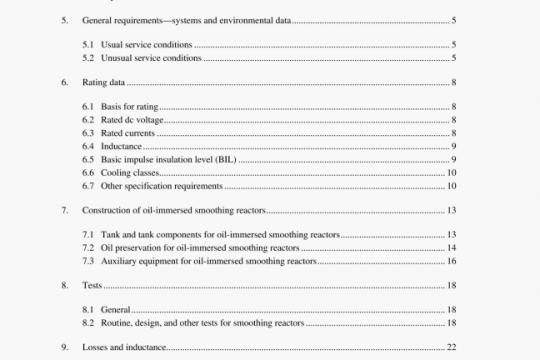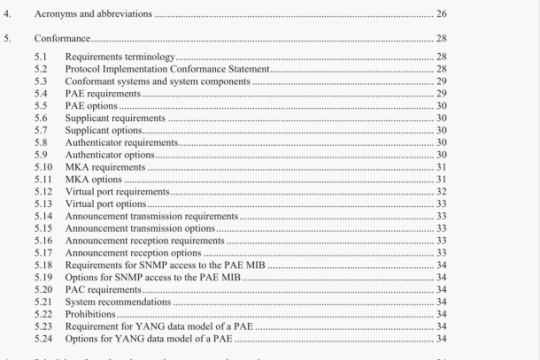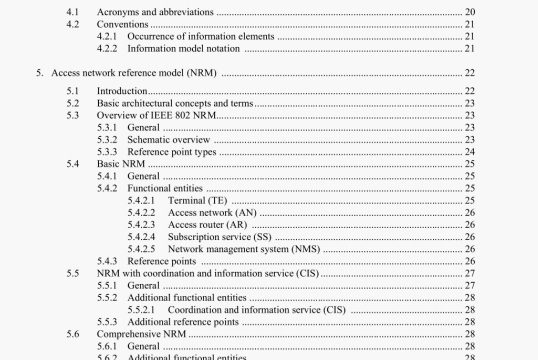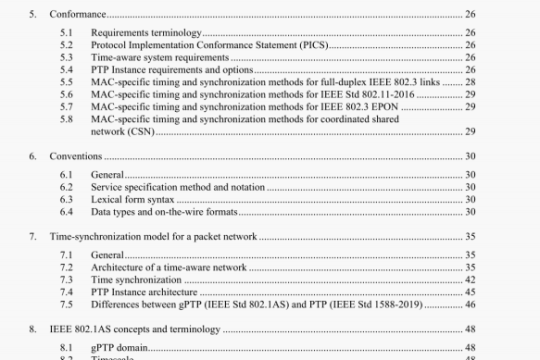IEEE 1588-2019 pdf download
IEEE 1588-2019 pdf download.IEEE Standard for a Precision Clock Synchronization Protocol for Networked Measurement and Control Systems.
6.5.2.1.2 External environment and the Source Dependent and Sink Dependent blocks
6.5.2.1.2.1 Introducing time into a PTP Instance
Time from one or more external Clock Sources, that is, Clock Source blocks, can be introduced into a PTP Instance (and the domain) only via Source Dependent blocks. This is a one-way transfer of time from the external environment into the PTP Instance, that is, the operation of PTP does not change the time maintained by the external Clock Source. This transfer can require timing control signals as illustrated.
Typical external Clock Sources are GNSS receivers or terrestrial radio links. See Table 6 for an enumeration used to characterize such sources. Source Adapter blocks manage the differences between an interface unique to the external source and a common implementation-specific interface to the External Source block. The External Source block is responsible for selecting which of the external Clock Sources, or if none are available an internal source, is to be used as the basis for assigning values to the members of the default data set. in the event that the PTP instance is selected as the Grandmaster PTP instance, the External Source block also provides data to populate the time properties data set. See 7.6.6 for specifications on updating these data sets.
6.5.2.1.2.2 Providing time to an external application
Time from a PTP Instance can be provided to an external application, that is, Clock Sink block, only via the
Sink Dependent block (see 7.6.7). This is a one-way transfer of time from the PTP Instance to external
Clock Sinks; that is, the operation of PTP is not changed as a result of this time transfer. This transfer can
require timing control signals as illustrated. There can be multiple sinks served by a PTP Instance.
Typical external applications, that is, Clock Sinks, are sensors, actuators, and waveform generators. Sink Adapter blocks manage the differences between an interface unique to the external Clock Sink and a common implementation-specific interface to the External Sink block. The External Sink block is responsible for delivery of either PTP- or ARB-based time (see 7.2.1), as well as for accompanying metadata to this interface.
6.5.2.1.3 Common core, data sets, internal clocks, and management
6.5.2.1.3.1 PTP Common Core block
The PTP Common Core block is responsible for all operations of the PTP protocol that are common to the other blocks to the PTP Instance as a whole, as well as for coordinating the activities of the other blocks in the PTP Instance. These responsibilities include the following:
a) Operations, except for management (see Clause 15), of the default, parent. current, time properties, and optional data sets that are not per PTP Port (see Clause 8)
b) Aspects of state configuration, including the BMCA, that require considerations of information from all PTP Ports (see Clause 9)
c) Aspects of PTP message handling that require considerations of information from all PTP Ports, and inter-port PTP message and information handling for retransmission (see Clause 10 and Clause 11)
d) Aspects of optional PTP features that require consideration of information from all PTP Ports (see Clause 16 and Clause 17, Annex J, and Annex P)
6.5.2.1.3.2 Clocks associated with a PTP Instance
The PTP protocol maintains time within each PTP Instance and within the domain, based on either the timescale PTP or the timescale ARB (see 7.2.1). The protocol can distribute information enabling an external Clock Sink to convert from one of these timescales to an application-specific timescaic. This conversion can be done in the Sink Adapter block or by the external Clock Sink itself.




